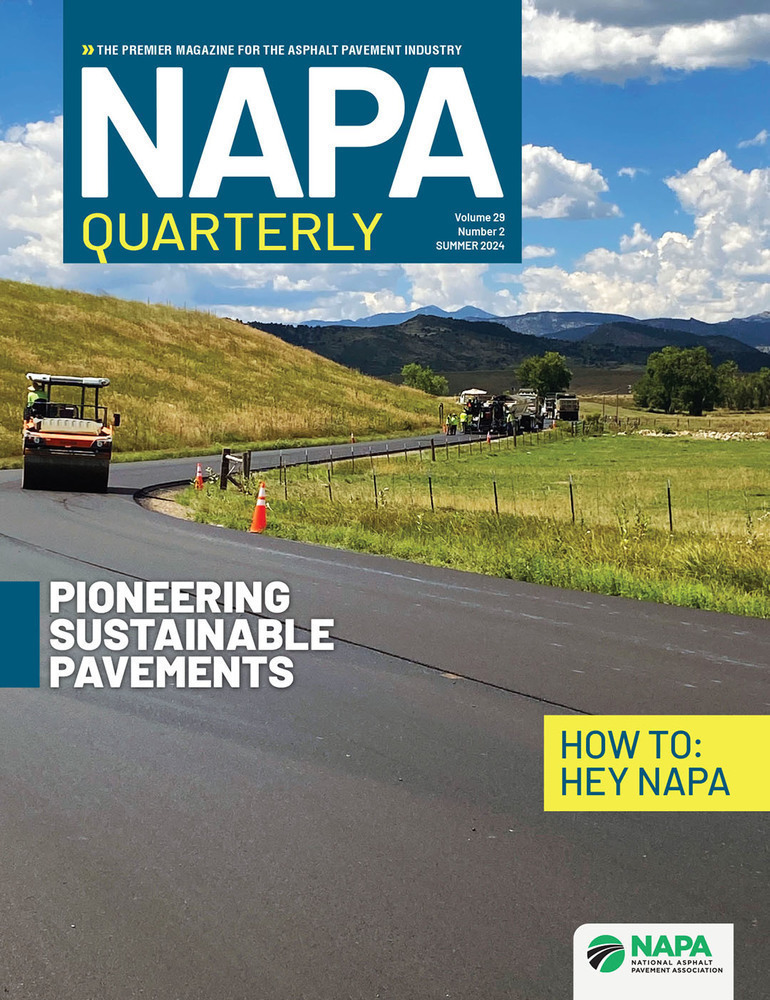Publication: NAPA Quarterly Summer 2024
Date: June 2024
Expert: Pouya Teymourpour, R&D Manager - Asphalt Mixtures
IN THE QUEST FOR MORE sustainable and efficient road construction methodologies, the transition from Hot Mix Asphalt (HMA) to Warm Mix Asphalt (WMA) stands out as a beacon of innovation and environmental stewardship. Originating from a collaboration among Arkema, Holcim Group Companies, and Boulder County, the WMA trial represents a compelling case study for successfully pursuing sustainable paving solutions. The initiative seeks to innovate and inspire an industry-wide reevaluation of traditional practices: prioritizing environmental stewardship without compromising paving quality. Details shared here highlight the critical findings from the trial and create a framework to support a sustainable future for asphalt production and application.
A baseline trial conducted before the introduction of WMA utilized established HMA production methods. Highlighting these traditional practices that have served the industry well underscores the potential for improvement. The average production temperature for HMA stood at 320°F, with a compaction process ranging from 260°F to 280°F. This demonstrates the efficiency of conventional methods yet hints at the environmental and operational benefits of reduced temperatures.
WMA production began with strategic temperature reductions facilitated by utilizing WarmGrip® Ultra 1 warm mix additive marking significant progress towards the trial goals. Introduced in the 2000s, WMA revolutionized asphalt production and paving. Unlike traditional HMA, WMA allows our industry to create more durable, high-performing roads while minimizing environmental impact. By modifying the binder and using warm mix additives, we work with the asphalt at lower temperatures, achieving benefits such as reduced emissions, enhanced moisture protection, extended paving seasons, improved workability, and cost savings throughout the pavement’s life cycle. Boulder County’s trial demonstrated the feasibility of reducing production temperatures by 45-50°F and by 60°F to 210°F for compaction of True WMA without compromising on density or performance. This finding could have profound implications for the industry’s carbon footprint and environmental impact.
To read the full article, please download the PDF.

